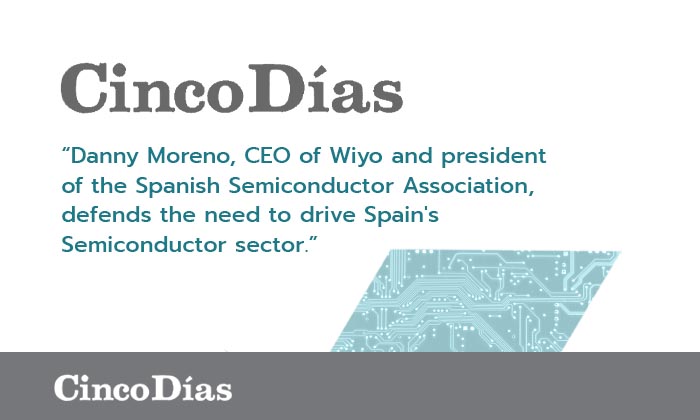Spanish microchip firms team up to boost a neglected sector
Last November, four companies (Wiyo, Imasenic, Kdpof and ICMálaga) dedicated to the design of microchips in Spain, announced the creation of the first Spanish semiconductor industrial association, just at a time when the world is experiencing a shortage crisis of this element. Its president, Danny Moreno, who is also CEO of Wiyo, assures this newspaper that the aim of the association “is to be the engine of innovation” in our country, and that for this reason they will request a meeting with the Executive to discuss how to boost the semiconductor sector, which currently has no production plant in Spain.
“We design and market chips, but they are manufactured abroad. It is essential that the design is done here,” says Moreno, who recalls that there was a time when Spain did produce microchips. “Many years ago there was a plant here [in Tres Cantos, Madrid, inaugurated in the 1980s], but due to economic issues of competition with other countries, especially Asian ones, it is no longer here,” says Moreno, who points out that having a plant is “completely strategic for a country”.
“Everyone often says that it is China that concentrates manufacturing. While it is true that it has a large volume of production, the chips with the latest technology, those used in processors and cell phones, come from factories in Taiwan and South Korea, not China,” explains the manager.
Having a factory for this type of microchips in Spain, which usually measure between five and seven nanometers, says Moreno, is not viable in the short term, although it would be feasible to have a factory to supply the automotive industry. “The case of cars is different. Most of the chips used in vehicles are around 180 nanometers, so the national motor industry could be covered with a less competitive technology [than that needed for cell phones],” he says.
Government commitment
Moreno’s words are in line with those of the Minister of Industry, Trade and Tourism, Reyes Maroto, who stated that Spain “has the ambition” to have its own microchip plant.
“We are going to be the driving force so that Europe can host these future [microchip] factories to which we aspire in Spain,” said the minister in September, when she emphasized that this sector is also included in the Perte del vehículo eléctrico y conectado (Perte of the electric and connected vehicle). “[The Government] incorporated within the Perte investments to be able to develop that semiconductor production capacity,” she added.
Currently, there are about 20 companies dedicated to microchip design in Spain, according to Moreno. “It would be interesting to take advantage of all that momentum [from European funds and the electric vehicle Perte] to support the entire semiconductor industry so that we can not only supply domestic consumption, but even export as well,” says Wiyo’s CEO.




